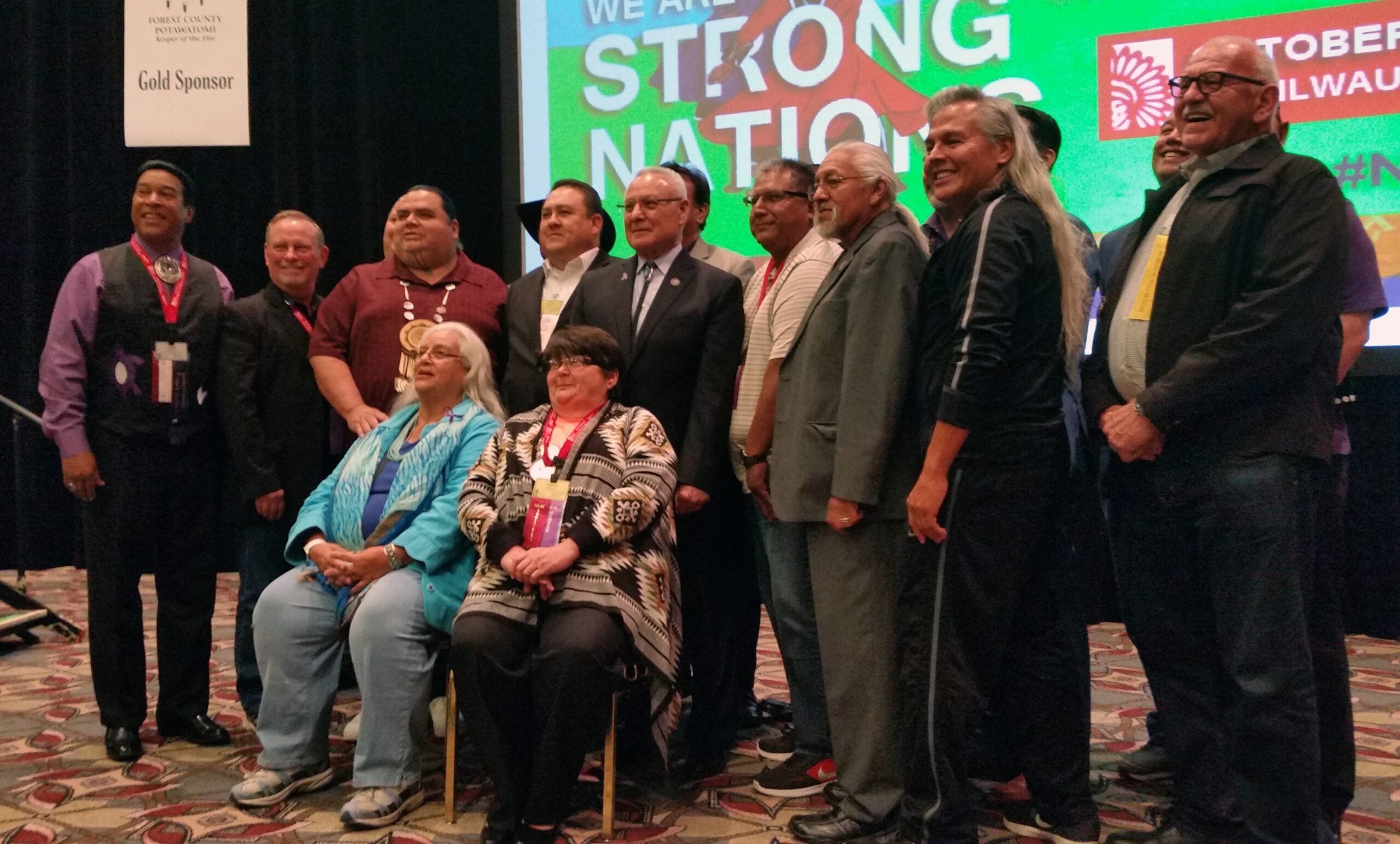A U.S. Department of Agriculture official says national forests in Wisconsin and elsewhere would benefit if Congress addressed the issue of funding.
The USDA’s Forest Service has spent much of its 2017 budget fighting fires this year.
USDA Deputy Secretary Steve Censky says $2.5 billion has been spent so far this year, meaning the agency doesn’t have the money it needs to maintain other forest land.
Stay informed on the latest news
Sign up for WPR’s email newsletter.
“That means less time to conduct insect control, to do controlled burns, the thinning of forests and other efforts. We need Congress to try to fix that funding problem, so that we don’t keep borrowing from our prevention programs to fight fires,” Censky said Friday at the National Congress of American Indians convention in Milwaukee.
In September, U.S. Secretary of Agriculture Sonny Perdue said fire fighting costs for the fiscal year exceeded $2 billion, making 2017 the most expensive year on record.
The Forest Service budgets firefighting money each year. That amount is based on the average spent over the most recent 10 years. That was about $1.9 billion in the budget year that just ended, according to The Associated Press.
Due to the extensive funding that has gone to fighting forest fires this year, a bill in the U.S. Senate would let the Forest Service use emergency funding to fight fires.
Another measure being heard in the House would add controversial changes to laws protecting endangered species and the environment.
USDA Reorganization Plan Proposed
In early September, the USDA also announced the realignment of a number of offices within the agency. The plan would create an Office of Partnerships and Public Engagement by grouping together: the Office of Advocacy and Outreach; the Faith-Based and Neighborhood Partnerships staff; the Office of Tribal Relations; and the Military Veterans Liaison.
Perdue says the plan would improve customer service and increase efficiency.
Tribal leaders at NCAI criticized some of those changes, expressing concern that the Trump Administration may want to weaken the tribes’ clout.
While Censky touted the proposed agency reorganization plan, Curtis Sommer of the Tanana Tribal Council in Alaska told Censky he’s concerned about the tribal office being grouped with a USDA faith-based program.
“I would like to know what the definition of faith-based is, and why we, as the First Peoples, are being put in there,” Sommer said.
Censky emphasized that the Office of Tribal Relations would still be under agency control. But Censky said he’d talk with Perdue about the tribal concerns raised at the convention.
Wisconsin Public Radio, © Copyright 2024, Board of Regents of the University of Wisconsin System and Wisconsin Educational Communications Board.






